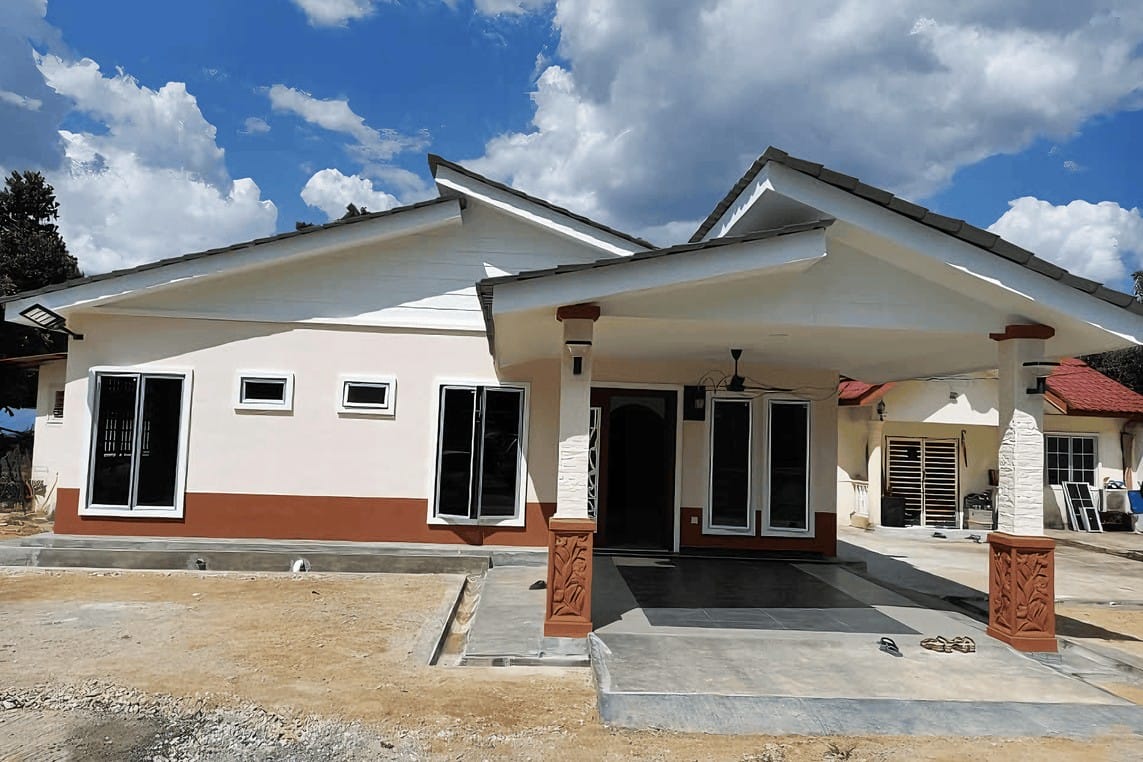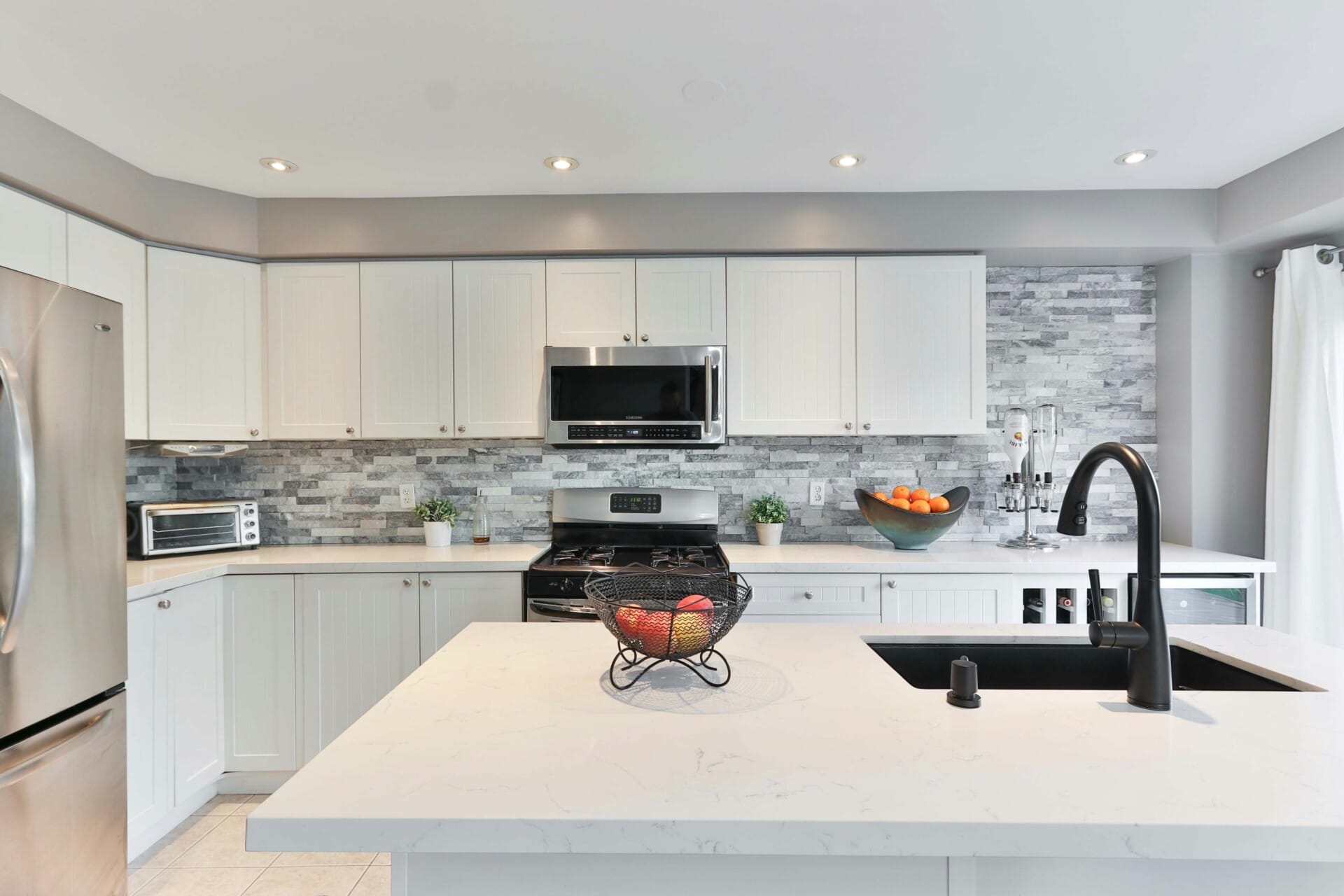[ad_1]
Are you planning a renovation or building project in Malaysia and feeling a bit overwhelmed by the whole contractor thing? You’re not alone! Whether it’s sprucing up your home or building your dream space, the quest for the best deals can be a bit of a headache. But don’t stress! We’ve got your back. In this article, we’ll share five insider tips that will help you navigate the contractor maze and score the best deal possible. From knowing what to ask to understanding the fine print, these tips are designed to arm you with the knowledge you need to maximize your budget without compromising on quality. Ready to unlock the secrets? Let’s dive in!
Understanding the Contractor Landscape in Malaysia
involves recognizing the diverse network of professionals and the regulations that govern their work. The construction industry is bustling, with contractors ranging from small local firms to large multinational companies. Each type comes with its own set of strengths and weaknesses. By knowing the intricacies of this landscape, homeowners can position themselves better during negotiations.
Contractors typically specialize in various areas of construction, such as residential, commercial, or infrastructure projects. It’s beneficial to categorize them based on their niche expertise. Here are some essential types of contractors you might encounter:
- General Contractors: Handle overall project management and coordination.
- Subcontractors: Focus on specific areas like plumbing, electrical, or finishing work.
- Design-Build Contractors: Manage both design and construction to streamline processes.
Another key aspect is understanding the regulatory environment. The government of Malaysia sets certain standards and requirements for contractors, ensuring that they adhere to safety and quality measures. This includes mandatory licenses, insurance, and compliance with local building codes. It’s crucial for homeowners to verify qualifications and licenses before diving into any project. Armed with the right knowledge, clients can engage contractors who not only offer competitive pricing but also ensure that their work meets the highest standards of quality and safety.

Establishing Clear Expectations Before Negotiations
Setting the stage for successful negotiations with your contractor requires clear communication of your expectations right from the start. Before you even sit down to discuss terms, take time to outline what you need and want from the project. This preparation includes understanding your budget, timeline, and any specific materials or designs that are crucial for your vision. By laying this groundwork, you can avoid misunderstandings later on.
During your initial discussions, share your project scope with the contractor. This encompasses your expectations about:
- Project Duration: How long you expect the work to take.
- Budget Constraints: A clear indication of what you’re willing to invest.
- Quality of Work: Standards you have in mind for the finish.
- Communication Style: How often do you want updates, and through which channels?
Having a clear and shared understanding encourages a transparent dialogue. Consider using a simple table to summarize your expectations, which can serve as a reference throughout the negotiations:
| Expectation | Description |
|---|---|
| Timeline | Completion by MM/DD/YYYY |
| Budget | RMXX,XXX |
| Quality Level | Premium Materials Only |
| Communication | Weekly updates via email |
Ultimately, the clearer you are about your expectations, the easier it will be for your contractor to meet them. This not only saves time but also fosters a more cooperative working relationship, ensuring that both parties are aligned towards achieving a successful project outcome.

Researching Market Rates to Strengthen Your Position
Before diving into negotiations with your contractor, it’s crucial to understand what others are paying for similar services in your area. This knowledge not only equips you with the confidence needed during discussions but also establishes a fair baseline for your project. Spend some time researching various contractors, their offerings, and the average market rates for your specific needs. The more informed you are, the stronger your position will be when it’s time to talk numbers.
To get a clearer picture of the prevailing rates, consider leveraging a mix of online resources and local insights. Websites that aggregate contractor ratings and pricing can provide invaluable data. Don’t overlook the power of networking! Tap into your circle for recommendations and firsthand experiences that can reveal hidden costs or bonuses that contractors may not advertise. Here are some effective avenues to check:
- Industry forums and groups on social media
- Local community boards
- Word-of-mouth referrals
It might also be beneficial to compile your findings in a straightforward table for easy comparison. Create a list that helps you visualize differences in services and costs. A simple table might look like this:
| Contractor | Service Type | Average Rate (MYR) |
|---|---|---|
| ABC Renovations | Home Renovation | 20,000 |
| XYZ Builders | New Build | 350,000 |
| 123 Contractors | Interior Design | 15,000 |
By visually comparing this data, you’ll be in a better position to negotiate effectively. Knowing what’s standard can also help you identify if a contractor’s quote is reasonable or if it’s inflated. Remember, the goal isn’t just to save money; it’s about securing the best quality service for your investment. Being prepared with this knowledge puts you in the driver’s seat when discussing your project scope and budget.

Leveraging Timing for Optimal Contracting Opportunities
When it comes to working with contractors, timing can be everything. You’ll often find that during off-peak seasons, contractors are more willing to negotiate on pricing. Think about it: in the rainy season or during the end of the year, many construction projects slow down, and contractors may be eager to fill their schedules. This can be the perfect opportunity for you to secure a better deal. Keep an eye on local weather patterns and market cycles to plan your project timing strategically.
Another angle to consider is the financial calendar. Many contractors have end-of-month or end-of-quarter goals they’re trying to meet. If you approach them during these times, especially towards the end of their fiscal periods, they may be more flexible with their pricing or willing to throw in additional services at little or no cost. It’s all about playing your cards right. Capitalize on these instances, and you may save more than you anticipated!
| Best Times to Consider | Reasons |
|---|---|
| Off-Peak Seasons | More availability, lower demand |
| End of Month/Quarter | Contractors may be eager to finalize deals |
| Holiday Periods | Potential for great deals, reduced competition |
While understanding when to negotiate is crucial, don’t forget the importance of being mentally prepared and informed about the project requirements. Gather relevant quotes and do comparative research to ensure you are ready to engage effectively when the timing aligns. The louder you scream for a deal, the more the silence will eat at your chances. Being knowledgeable while picking the right moment to approach can set you up for success. Happy hunting!

The Art of Communication: Building a Rapport
Building a good rapport with your contractor is essential when trying to score the best deals. It’s not just about the price; it’s about creating a partnership based on trust and mutual respect. Start with open communication—don’t be afraid to voice your ideas and concerns, and encourage your contractor to do the same. When you engage in a two-way conversation, it not only makes your intentions clear but also sets the foundation for a more flexible negotiation process.
Another important aspect is to show genuine interest in their work. Ask questions about their experience, methodologies, and a little about their previous projects. Not only will this make them feel valued, but it can also create shared excitement over the work at hand. You’ll often find that a contractor who feels appreciated is more inclined to go the extra mile for you, which could translate into better pricing or additional services at no extra cost.
Lastly, remember that a little gratitude goes a long way. If they do something that impresses you—be it a small favor or exceptional work—acknowledge it. You could say something simple like, “I really appreciate the effort you put into this!” This positive reinforcement can foster a friendly atmosphere, and contractors are more likely to reward your kindness with flexibility on costs or timelines.

Identifying Value Beyond the Price Tag
When choosing a contractor, it’s essential to understand that the cheapest option isn’t always the best. Quality of work, materials used, and timeliness all contribute to the overall value a contractor brings to your project. To really get a sense of value, think beyond that price tag. Ask the contractor about their experience and previous projects to gauge their proficiency and reliability.
Another key aspect is customer service. A contractor who is attentive to your needs and communicates clearly is worth their weight in gold. Look for reviews or testimonials, as they often reveal insights into how a contractor handles challenges and interacts with clients. Consider questions like:
- How responsive are they to your queries?
- Did they meet deadlines on past projects?
- Do they offer warranties or guarantees on their work?
Lastly, evaluate what additional services they might include. Some contractors offer project management or design consultations at no extra cost, which can save you time and money in the long run. Here’s a quick comparison to help you consider these factors:
| Factor | Contractor A | Contractor B |
|---|---|---|
| Experience Level | 10 years | 5 years |
| Customer Reviews | 4.8/5 | 4.2/5 |
| Additional Services | Free design consultation | No extras |
By considering these elements, you can identify the true value a contractor offers, leading to a more satisfactory outcome for your project. Ultimately, investing in a contractor who brings more than just a low price can save you time, money, and stress down the line.

Navigating Hidden Costs and Additional Fees
When engaging a contractor, understanding the potential hidden costs is crucial for staying within your budget. Many homeowners overlook these extra expenses, which can significantly impact the final bill. To avoid any unpleasant surprises, always request a detailed quotation that breaks down the costs. This should include labor, materials, and any potential add-ons like permits or cleanup. Don’t hesitate to ask questions about anything that seems vague or unclear.
Another aspect to consider is the timeline of the project. Delays can lead to extra costs, especially if your contractor needs to adjust their scheduling or allocate resources differently. Be sure to discuss timelines thoroughly upfront and clarify any penalties for delays. Establishing a clear timeline also helps set expectations for when additional costs may arise, should any issues occur during the project.
Additionally, be mindful of various fees that might not be included in the initial estimate. Some common factors that could introduce extra costs are:
- Change orders - Modifications you request after work starts can add to the final bill.
- Travel costs - If your project requires the contractor and their team to travel long distances.
- Materials upgrade – Choosing higher-quality materials can lead to a price hike.
A transparent agreement can make a world of difference, so ensure every aspect of the contract is clear to both parties.

Finalizing the Agreement: Ensuring Everything is in Writing
When it comes to finalizing your agreement, having everything in writing is crucial. This isn’t just a best practice; it’s your best line of defense against any misunderstandings. Here are some key points to keep in mind:
- Clear Scope of Work: Make sure that the tasks and responsibilities are clearly outlined. This should include timelines, materials to be used, and who’s responsible for what.
- Pricing Breakdown: Do not leave pricing ambiguous. Ask for a detailed cost breakdown to understand what you’re paying for and to avoid hidden charges.
- Change Orders: Specify how changes to the original plan will be handled. It should be clear that any modifications need written approval before they’re implemented.
Next, ensure that both parties agree on the payment schedule. This is vitally important as it helps maintain a smooth workflow and sets expectations right from the start. The payment plan could include milestones or phases that align with specific project deliverables. Here’s a simple way to structure your payment schedule:
| Payment Stage | Percentage Due | Deliverable |
|---|---|---|
| Initial Deposit | 30% | Before work begins |
| Mid-Project Payment | 40% | After major milestones are completed |
| Final Payment | 30% | Upon project completion |
Lastly, make sure to document everything related to the agreement. This includes any communications, amendments, or discussions that may arise as the project progresses. Keeping a record not only keeps everyone accountable but can also save you time and hassle should disputes occur. Remember, a well-documented agreement is not just a formality; it’s a tool for ensuring your project runs smoothly.
Closing Remarks
So there you have it—our five insider tips for snagging the best deal from your contractor in Malaysia! Whether you’re renovating your home or building from scratch, a little savvy can go a long way in saving you time, money, and a whole lot of hassle.
Remember, it’s not just about finding the lowest bid; it’s about building a strong relationship with your contractor and ensuring clear communication throughout the process. So, do your homework, ask the right questions, and don’t hesitate to negotiate.
With these tips in your back pocket, you’re all set to embark on your project confidently. Happy building, and may your dream space come to life just the way you envision it!












